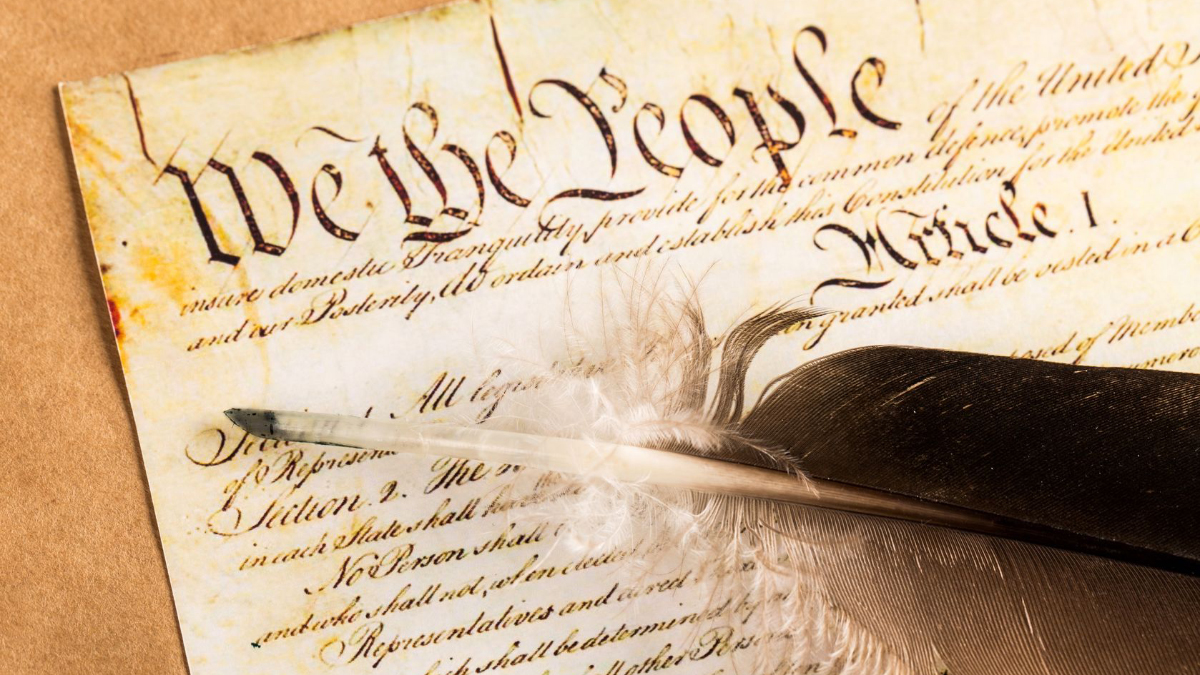December 15 is Bill of Rights Day. Americans are encouraged to display the flag and meet to celebrate the first 10 amendments to the Constitution. President Franklin D. Roosevelt, who declared the first Bill of Rights Day in 1941, described these early amendments as the “great American charter of personal liberty and human dignity.” He urged an annual “day of reassessment of their present meaning and their living worth.”
If Americans took FDR’s advice, December 15 would be a day of mourning, not celebration because the Bill of Rights has been little more than a smokescreen for those favoring an omnipotent federal government.
Many of the state conventions that ratified the Constitution of 1787 had expressed concerns about various provisions. For example, the New York convention published a letter declaring that certain sections “appear so exceptionable to a majority of us, that nothing but the fullest confidence of obtaining a revision of them by a general convention ... could have prevailed upon a sufficient number to ratify it.”
In September 1788, delegates from Philadelphia and 13 Pennsylvania counties agreed that the citizenry should acquiesce in the formation of the new national government, but they worried about the Constitution’s effects on future generations. It included, they averred, “some principles which may be perverted to purposes injurious to the rights of free citizens.” The document also contained “some ambiguities which may probably lead to contentions incompatible with order and good government.” The delegates recommended that the Pennsylvania legislature petition Congress for a second convention to consider revisions.
States submitted over 200 amendments to the first Congress and were promised they would be considered early on. The amendments dealt with substantive matters such as taxation, the treaty power, control over elections, implied powers, and a host of other issues.
The Federalists, who were in power and wanted a strong central government, agreed to offer amendments to avoid a second constitutional convention. But they ignored most of the suggestions from the states. Gov. Samuel Johnson of North Carolina advised his fellow Federalists that amendments should be “a little Flourish & Dressing without injuring the substantial part” of the Constitution. Hence, no amendments were considered that would have curbed Congress’s power to borrow money, levy direct taxes, or stay in power indefinitely without formal term limits.
Americans desiring real changes to restrain the national government were disappointed. William Grayson, writing to Patrick Henry, complained that Congress’s proposed amendments “are so mutilated & gutted that in fact they are good for nothing.” Theodorick Bland of Virginia lamented that the congressmen “have not made one single material” alteration to the Constitution. Thomas Tudor Tucker thought the amendments sent to the states were “calculated merely to amuse, or rather to deceive.”
Tucker was right. According to historian Gordon Wood, “After ratification [of the Bill of Rights], most Americans promptly forgot about the first ten amendments to the Constitution.” They did little to improve the system or to secure individual liberty.
For instance, the Federalist Congress ignored the protections of speech and the press, just seven years after ratification of the First Amendment, by criminalizing criticism of the national government via the Sedition Act of 1798. The Federalists argued that inherent powers, the Necessary and Proper Clause, and the General Welfare Clause gave Congress the right to pass such a law. Those clauses and theories of power had been the targets of the original amendments proposed by the state conventions. Today, the same clauses and theories are used by a Congress that is constrained by little else than its own will.
When we measure the first 10 amendments against what the states asked for, we can see that the Federalists cheated Americans out of real limitations on federal power. We are better off with our Bill of Rights than with nothing, but we are poorer for the first Congress’s refusal to consider amendments of substance.
Rather than decorate buildings with American flags, as urged by FDR, perhaps black banners of mourning would be more appropriate as we “celebrate” Bill of Rights Day.












